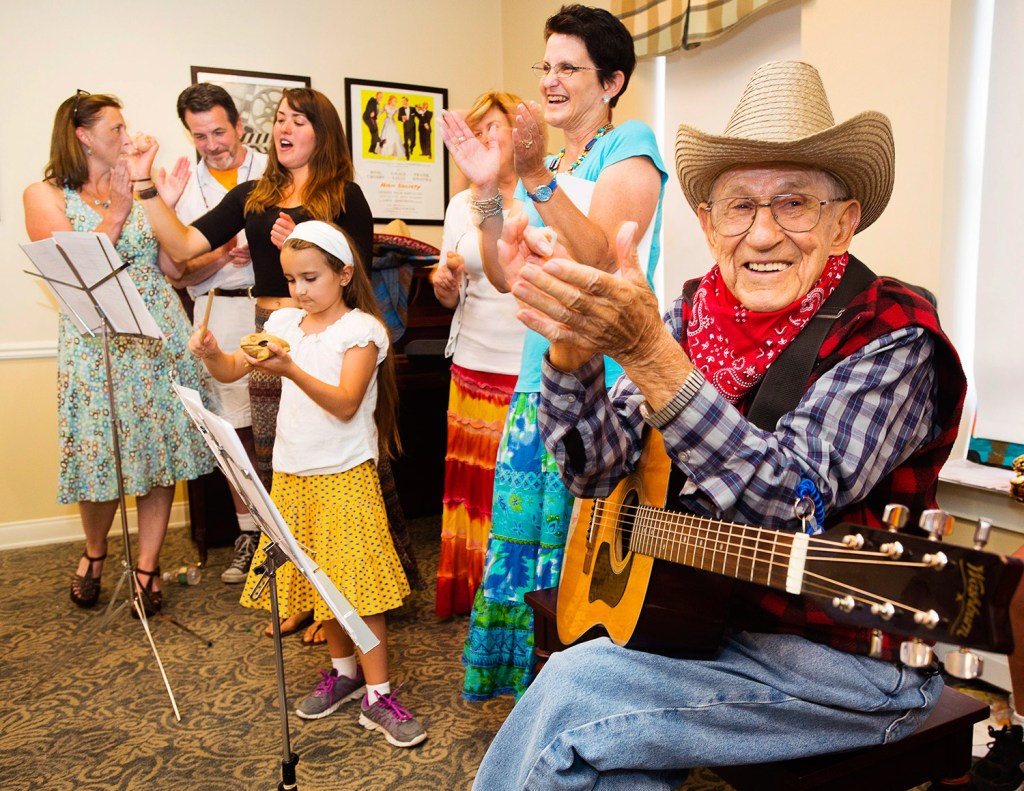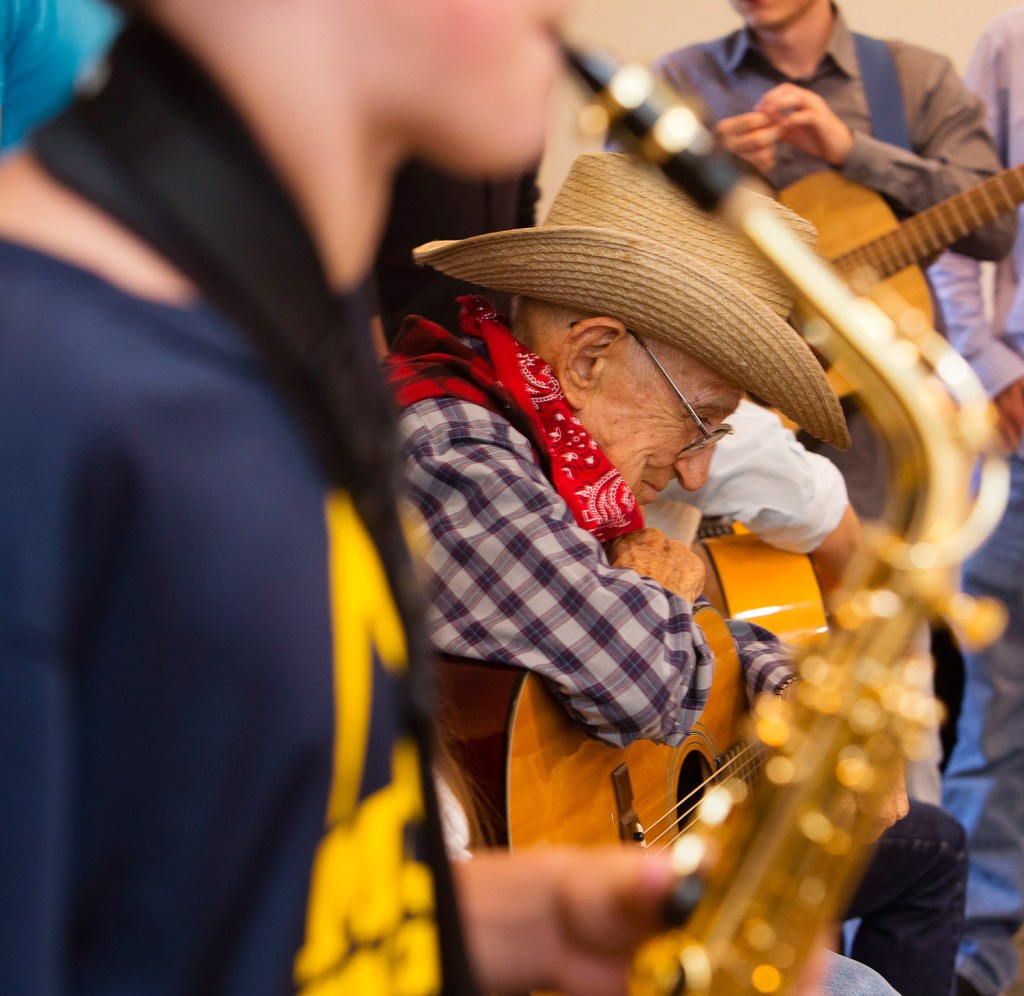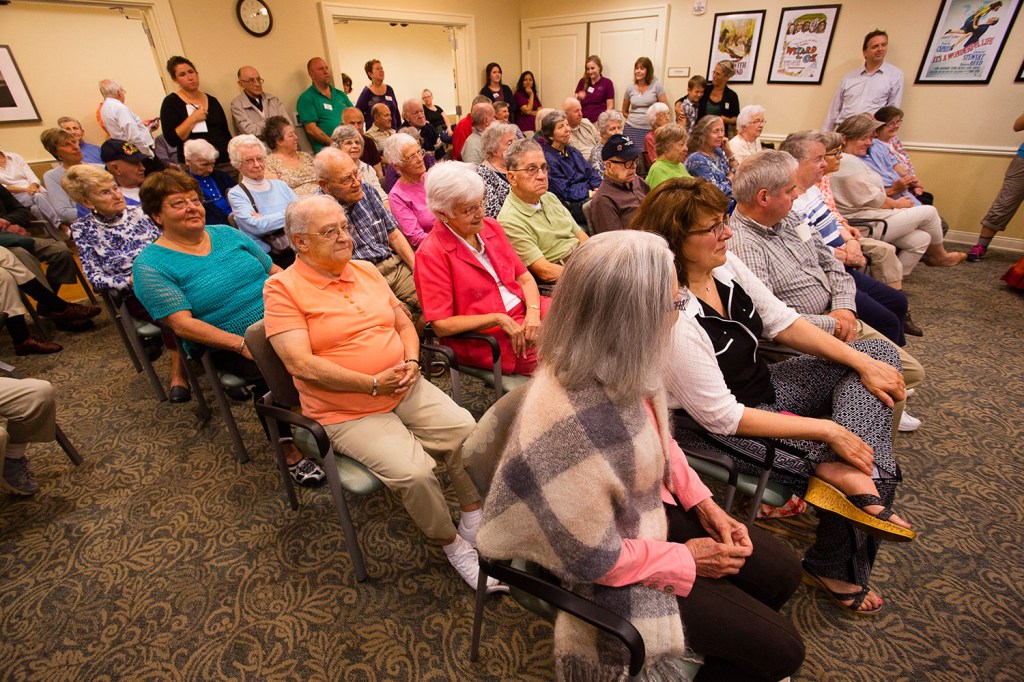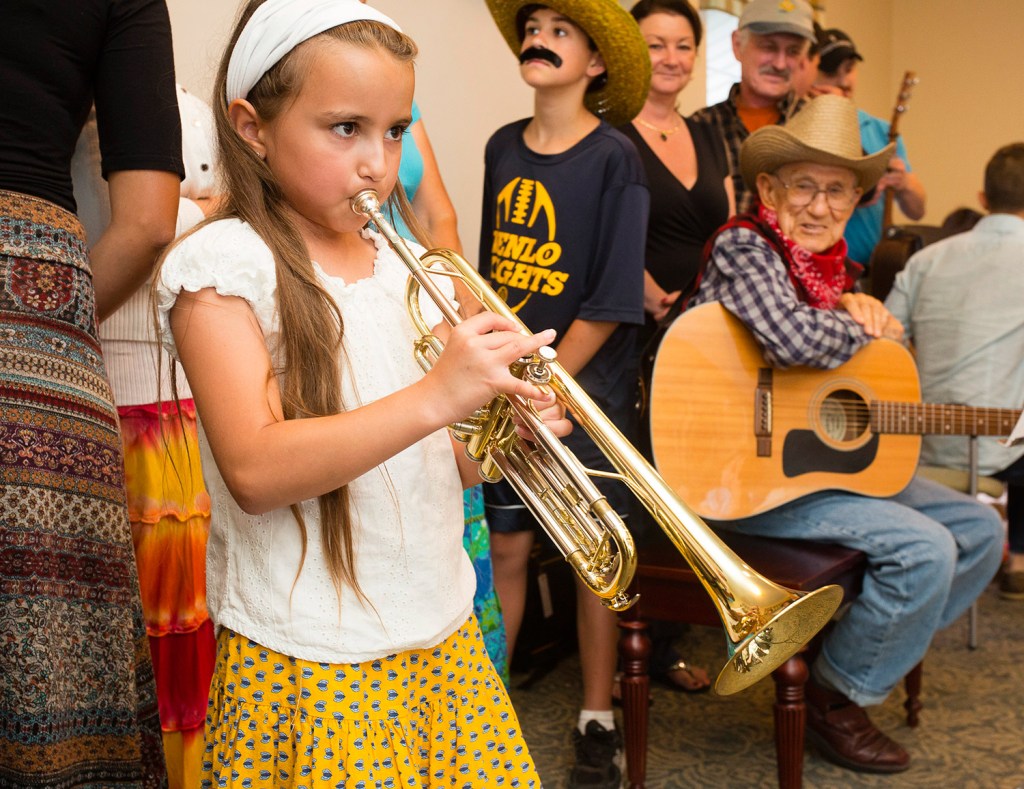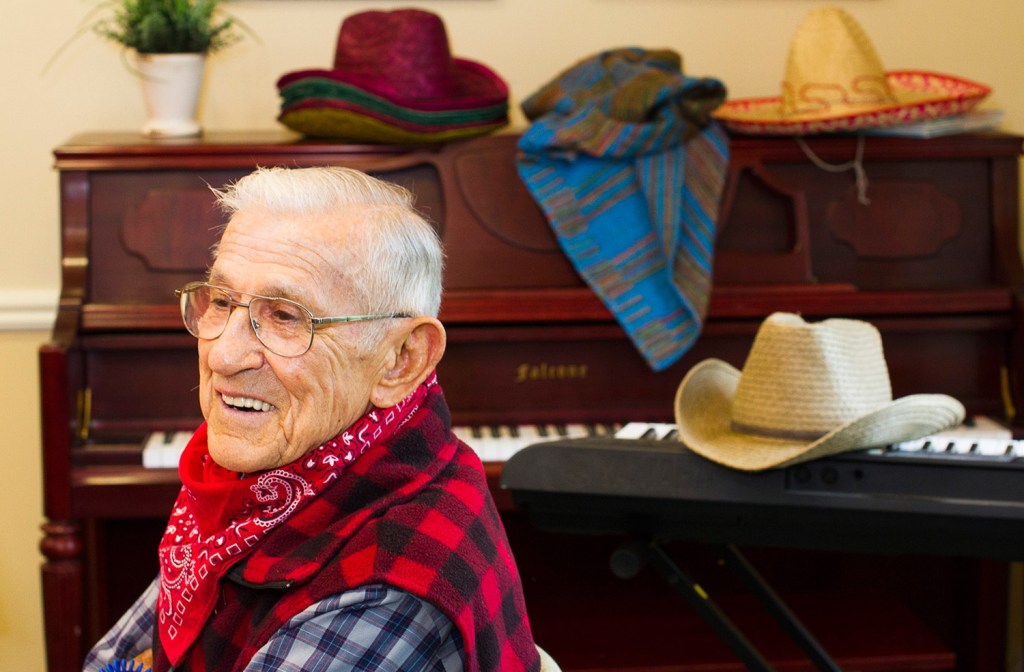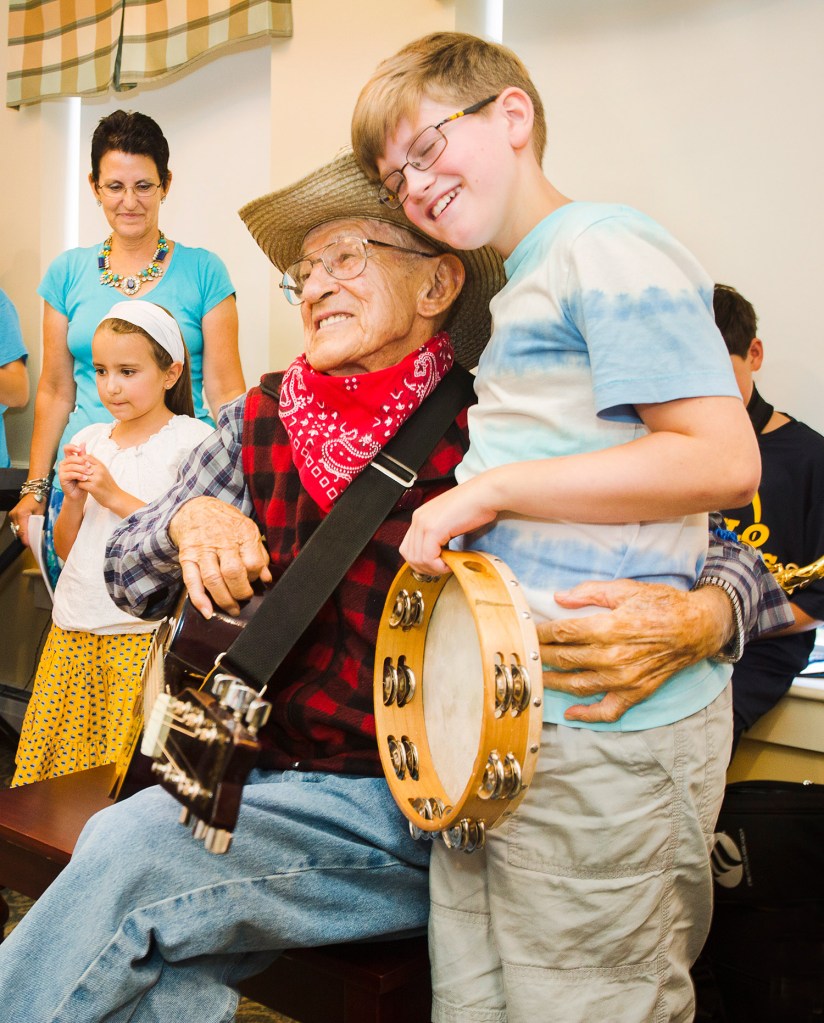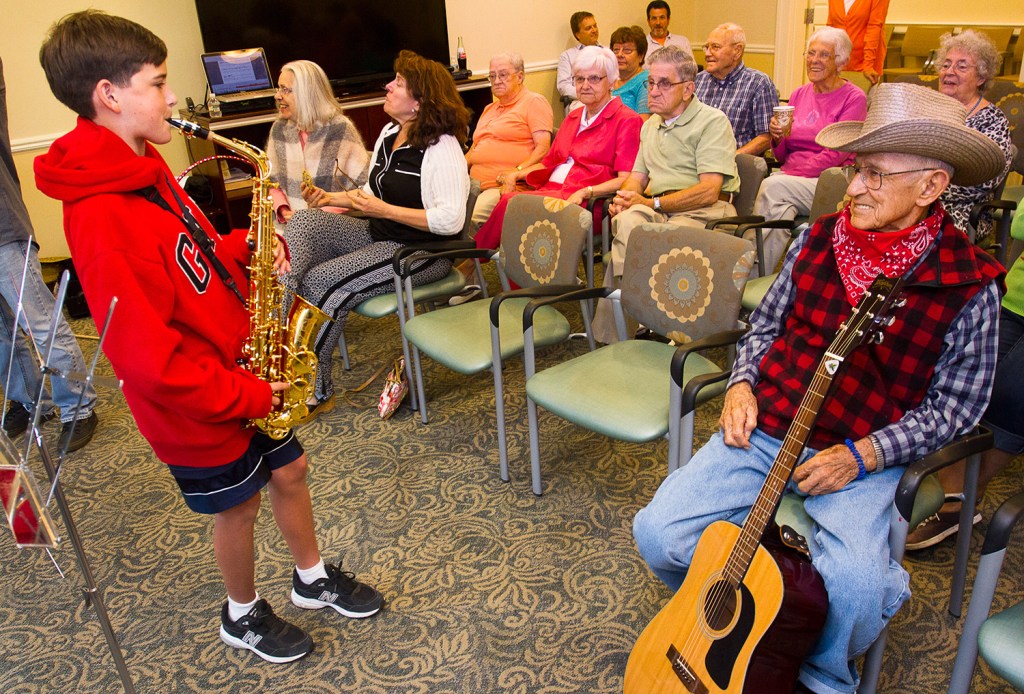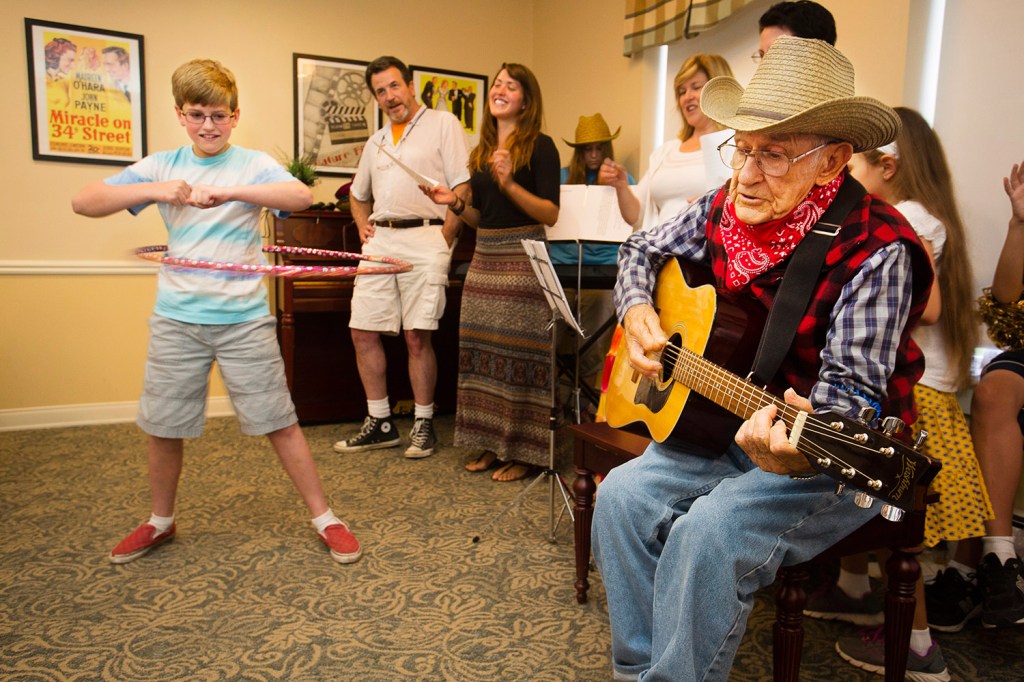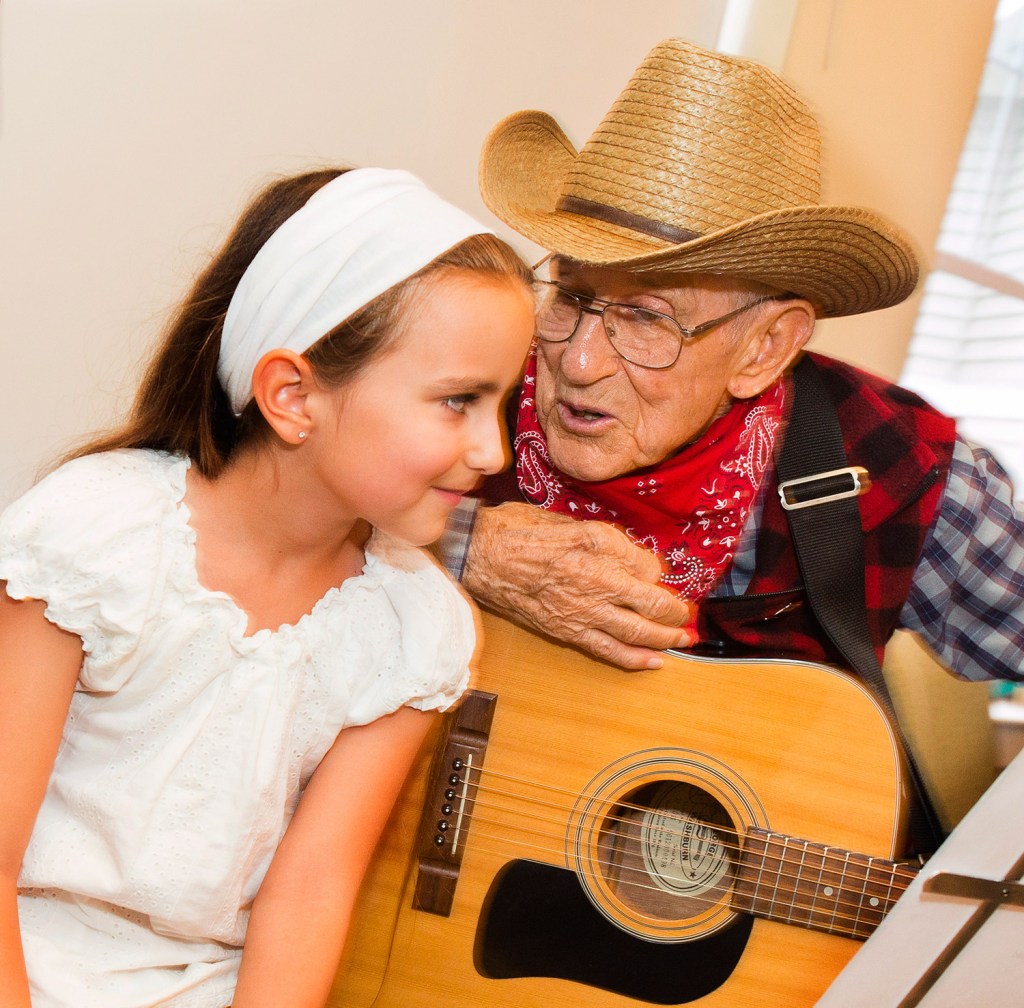WESTBROOK — Even after his wife died and their band, The Silver Tones, split up, Paul Farrell kept performing.
 Into his 80s, the guitar player would visit nursing homes near his house in Auburn to sing “Happy Birthday” to the residents, then stay for a couple more songs. A few years ago, his family started joining him when they came to visit in the summer, playing full sets with their makeshift band of more than a dozen members, most of whom inherited his musical genes. Farrell, now 88, will brag about them all.
Into his 80s, the guitar player would visit nursing homes near his house in Auburn to sing “Happy Birthday” to the residents, then stay for a couple more songs. A few years ago, his family started joining him when they came to visit in the summer, playing full sets with their makeshift band of more than a dozen members, most of whom inherited his musical genes. Farrell, now 88, will brag about them all.
“I’ve got six children, 17 grandchildren, nine great, nine great-great. There was a new one born last week and there’s some more on the way,” he’ll tell you – except there are no great-great-grandchildren or any on the way.
For a while, Farrell’s children had noticed he was getting things wrong. He would repeat himself. The details of his stories would change. Last fall he fell ill after forgetting to take his daily medications, and they decided he could no longer live on his own.
They found him a place in the memory care center at Avita of Stroudwater in February. Doctors, who diagnosed him with Alzheimer’s disease and vascular dementia, said it was where he needed to be. But moving to the assisted living facility in Westbrook meant not only giving up his independence, but also his gigs – most upsetting to Farrell, the annual family performance. So they made him a promise.
A MUSICAL YEARNING BLOSSOMS
Farrell sat at the head of one of two folding tables – the kids, ages 10 to 24, at one and the adults at the other with hot dogs and hamburgers in front of them. The June rainstorm outside didn’t dampen the barbecue set up in an event room at Avita that, after lunch, would transform into a concert hall.
With his arms folded and his legs crossed at the knees, Farrell surveyed the scene.
“Would you believe I’m responsible for all this?” the patriarch said with a smirk. “And I had fun doing it, too.”
Performing comes naturally to Farrell.
With a soft smile that makes his eyes squint almost shut and his hand gently placed on the shoulder of whoever is listening, he tells stories about growing up in Canada, then working as a telegrapher for Maine Central Railroad, as if they were fairy tales.
“I had the most wonderful life of any 10 men in the world,” he said, as he often does, with that French accent he hasn’t shaken since moving to Auburn after college.
Music has always played a big part of his life and is a common theme in his stories.
There was the time he got hit by a car while walking to his second day of school in St. Leonard, New Brunswick. Rendered blind for two years, he credits his mother’s singing voice for nursing him back to health.
“Maman sang like a nightingale,” he said. “She couldn’t read or write, but she played all the instruments that you can imagine.”
Farrell often recalls when he first decided to learn the guitar. He was listening to Chet Atkins on the radio at the railroad station and said he’d kill to play like that. His supervisor scoffed at the idea, so Farrell told him he’d learn “Rudolph the Red-Nosed Reindeer” by Christmas. He walked in seven weeks later, on Dec. 24, and played it.
“They couldn’t believe it,” he said.
After he retired from the railroad and the Army Reserve, Farrell started filling in on guitar and vocals for several bands, then began a trio with his wife and a friend. Later, they were joined by two other musicians who had left their groups.
“I called it The Silver Tones because we all had gray hair,” he said.
PERFORMANCE CROSSES GENERATIONS
Growing up, his children said, whenever they had visitors at the house, Farrell’s guitar would come out. On their birthdays, no matter where they were, they could count on getting a call from their father, who’d start singing as soon as they picked up.
His love of music has made its way to the next generation.
As Farrell’s grandchildren bused the tables after lunch, a few of them broke into song. The music continued as the assisted living facility’s staff set up rows of chairs in the room and more in the hallway outside. Two brothers tuned their guitars to each other, while the youngest cousins blew out notes on brass instruments.
Farrell took a seat on a bench in the middle with his guitar in his lap, a red bandanna around his neck and, on his head, a cowboy hat – “mon chapeau,” he called it.
Other residents started shuffling in and taking seats, as Farrell’s family members – 15 in total – took their places in the front of the room with their guitars, maracas and music stands.
Along with the sheet music were set lists that included oldies and folk songs, some of them in French.
“I think this is going to be one of the better days you’ve seen in your life,” Farrell told the crowd.
They kicked off the set with “You Are My Sunshine,” and the audience members sang along with the lyrics they knew.
After Farrell’s children each introduced their families, the grandchildren performed solos on the violin, trumpet and saxophone. One of the boys twirled a hula hoop while the rest of the family sang “Chattanoogie Shoe Shine Boy.”
SONGS, STRUMMING AND STORIES
Farrell sang and strummed his guitar through all of the full-family numbers, giving life to the lyrics with lifts of his eyebrows and tilts of his head. When his fingers fell behind, the rest of the band would slow to his tempo. When he skipped a verse, his daughter would crouch next to him and sing the right words into his ear.
Halfway through, Farrell started telling stories between songs, going through his repertoire of tales from the railroad and growing up in Canada, sometimes rambling off but often coming back to some version of one of his signature lines.
After his youngest granddaughter finished singing a solo to music played from a boom box, Farrell turned toward the crowd.
“You all know I had something to do with this,” he said.
Send questions/comments to the editors.


